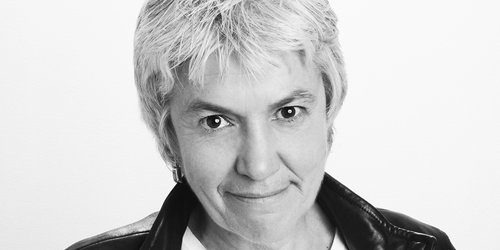By Andrea Poteet

Unless you're a hardcore folkie, you've probably never heard of Cris Williamson.
Often called "the best kept secret in music," Williamson's albums, especially 1975's "The Changer and the Changed," have been handed down by generations of devoted fans, but generally ignored by mainstream media.
And that's just fine with her.
"It's a great way to say how valuable some people think I am," Williamson says. "Maybe I was held a little too closely by people that love me. Love is like that sometimes. You hold things you love really closely and then others don't know about them. But it only makes me feel good."
Starting with her first record, 1964's "The Artistry of Cris Williamson" when she was just 16, Williamson has set out to create true-to-life lyrics inspired by the world around her. Forty-seven years and 19 albums later, she has blazed trails for gay artists and women in music.
During a radio interview in 1973 with fellow lesbian folksinger Meg Christian, she mentioned that someone should start a record company aimed at gay women. The next day, the two began work on Olivia Records, which issued "The Changer and the Changed" as its second release two years later.
"I just stood up and said, 'Let's go do something,'" Williamson says. "I didn't think of it as revolutionary at the time. Now I can see that it was, but I just thought, 'What are they talking about, let's just go do it.'"
Born in Deadwood, S.D. and raised without electricity in Colorado and Wyoming, Williamson grew up captivated by the music she played on a wind-up phonograph. As a teen, she played on a local radio station, and she instantly made fans. In fact, three listeners funded Avanti Records, which released her debut album. Two more records followed before she enrolled in the University of Denver. After graduating, she returned to music, releasing her self titled major-label debut for Ampex Records in 1971.
Being open about her sexuality early on endeared her to some but cost her the mainstream success enjoyed by contemporaries like Carole King.
"There could have been and probably were some stop-gap measures that happened," Williamson says, "Some of them I know about, some of them I never will know about. I was busy at the time cutting new ground."
Along the way, Williamson opened doors for musicians like k.d. lang and Melissa Etheridge to come out, created a folk subset that became known as "women's music" and saw "Changer" sell more than 500,000 copies with little radio play.
"If I were just starting out now, I think it would be radically different," Williamson says. "All over the world, they're saying the words 'lesbian' and 'gay' and 'queer' without dying a thousand deaths as they thought they would. There are all sorts of movements now."
Chock-full of confessional lyrics, "Changer" stands as her proudest accomplishment because of the way women reacted to it.
"I didn't mean to make this big piece," she says. "I was making a small piece and it was big because the need was so great. Necessity is the mother of invention. Women needed it so badly, they almost invented it."
She said she is inspired by everything, from snippets of conversations to headlines in newspapers. Most of her ideas have "walked right up" to her. But what made "Changer" different continues to elude her.
"It's not that those songs are better than other songs that I've written and it's not that it's just tied to a certain time," Williamson says. "There's something about it that goes beyond me. I tried to ask people what it is about that album and some just say it changed them. Well, that's big. That's big stuff. It's magnificent and it feels like a miracle. It feels like that's the universe's gift to me. It's like, 'You did good, girl.'"
Williamson continues to tour incessantly, and has sold out the famed Carnegie Hall three times. Now, she also shares her songwriting skills at frequent workshops, a project that began when a fan asked her to write a song about physical abuse.
"It reminded me that there's a certain amount we need to give back," she says. "We need to teach people how to do these things so they can speak the unspeakable things; otherwise, those demons haunt people forever. And music is one of the great releases in the world."
She said she hopes to continue to write, record, teach and tour as long as she has an audience.
"I'll keep working and working as long as I can do it," she says. "Picasso worked until he was well into his 90s. So why can't that be true? As long as my health is good and people want to still to hear me."
Williamson said she doesn't think of herself as a lesbian singer-songwriter, just a singer-songwriter that also happens to be gay. Her lyrics aren't about the gay experience, she said, but the human experience.
But she is thrilled with the steps gay artists have made since her debut, and is glad her name belongs on the list of those that opened the door.
"We don't all agree," she says. "Not all men agree, not all women agree. Not all gay people agree. But I think we can agree that there's a need for all sorts of art, and if queer art is part of that, then let it be."
Cris Williamson
The Ark ($17.50)
316 South Main St., Ann Arbor
7:30 p.m. Aug. 14
http://www.theark.org










